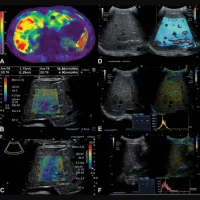A team of researchers at Case Western Reserve University received a four-year $3.7 million National Institutes of Health grant to support them in performing a robotic heart catheterization while the patient is inside an MRI machine.
It is estimated that between three to six million Americans suffer from atrial fibrillation (AFib), known to be the most common form of heart arrhythmia.
To manage the risk of stroke in AFib patients, patients normally undergo a procedure known as Left Atrial Appendage Occlusion (LAAO).
During this procedure, doctors insert a catheter through a vein or artery in the groin and it is thread up to the heart. It delivers an implant that aims to lessen blood clots in the heart, therefore reducing the risk of stroke in AFib patients.
With the support of an X-Ray of the heart, the doctor is able to view the heart tissue and manually position the implant. However, the X-Ray only provides a very hazy image of the heart.
However, with the new technology, clinicians can now perform the LAAO procedure wearing a mixed headset reality whilst controlling a micro-robotic device. This will help to ensure the placement of the implant is as accurate as can be.
Using this technology, clinicians can see high quality clinical images of soft tissue in real time.
M.CenkCavusoglu, lead research and Professor at the Case School of Engineering, explained, “He or she would be able to pinpoint the exact location, and the micro-robot would perform the procedure. This would make this procedure safer, easier, far more effective, and even less expensive as a treatment for atrial fibrillation (AFib)”.
Overall, the team noted there were significant challenges with developing a system for performing MRI-guided robotic atrial fibrillation ablation. It required bringing together experts from different fields to work on this project.
This novel approach has been worked on by Professor Cavusoglu and his team since 2013. In the coming years, they hope to validate the technology on preclinical studies before progressing to human trials.
Source: Case Western Reserve University
Image Credit: iStock










